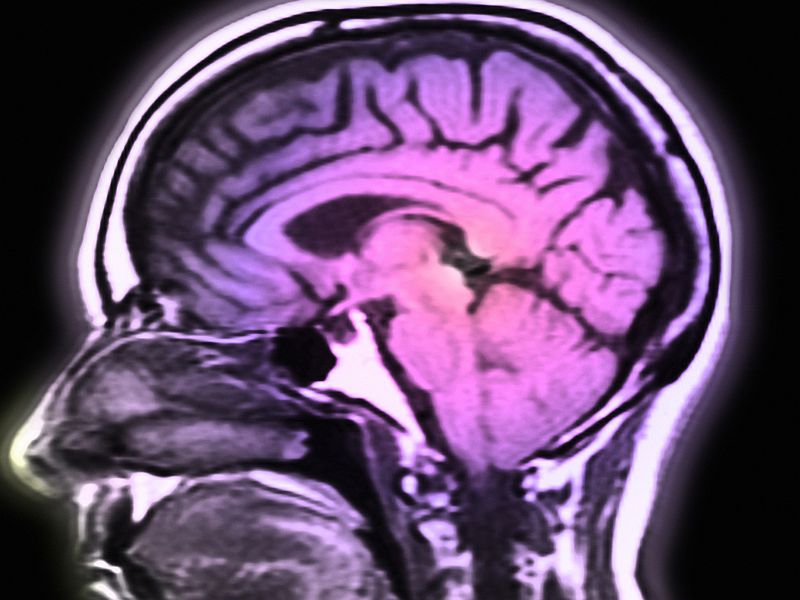
Deep brain stimulation appears safe for people with early Alzheimer’s disease — and might even slow down memory loss in some, a preliminary study suggests.
Deep brain stimulation (DBS) is already used to treat some cases of Parkinson’s disease and certain other brain-based disorders. It involves implanting electrodes in specific areas of the brain, then connecting them to a pulse generator placed under the skin of the chest. Once the generator is programmed, it delivers continual electrical pulses that alter the activity in specific brain “circuits.”
While it’s far too early to know whether deep brain stimulation helps those with early Alzheimer’s, the initial findings suggest the technique is worth further study, said lead researcher Dr. Andres Lozano. He is a neurosurgeon at Toronto Western Hospital, in Canada.
In his small pilot study of people with early Alzheimer’s, the procedure appeared to be mostly safe. And for those aged 65 and up, there were signs that their mental decline had slowed a bit over one year.
“Older patients seemed to get some benefit,” Lozano said. He noted that the vast majority of people with Alzheimer’s are older than 65.
But, he cautioned, deep brain stimulation is still in the “investigational” stages as a potential treatment for early Alzheimer’s.
“This is not available for general use,” Lozano said. “If patients were interested in it, they would have to get into a clinical trial.”
In theory, deep brain stimulation could be helpful because Alzheimer’s is marked by a degeneration in brain cells — with the “circuits” involved in memory, thinking and other mental abilities gradually shutting down, Lozano explained.
“We know this because we can see that glucose [sugar] metabolism in the brain decreases,” he said. “It’s like the lights go out in parts of the brain.”
Lozano’s team wanted to see whether deep brain stimulation could safely turn some of those lights back on.
So, the researchers implanted DBS systems in 42 patients with mild Alzheimer’s symptoms, 12 of whom were younger than 65.
The system was actually turned “on” in only half of the patients, so the other half could serve as a comparison group. The system was programmed to stimulate a brain area called the fornix — a bundle of fibers in the brain’s memory circuitry, Lozano said.
Over one year, the researchers found, the tactic appeared relatively safe.
One patient developed depression, worsening confusion and suicidal thoughts — though that was with the DBS system in the “off” position only. Another developed encephalomalacia, a softening in the brain tissue that can happen in response to an injury, the study reported.
“We haven’t seen any seizures or unusual side effects,” Lozano noted.
There were also hints of a benefit. In patients whose DBS system was turned on, sugar metabolism in key brain areas increased over the first six months.
“It looked like we were, indeed, able to turn some of the lights back on,” Lozano said.
That metabolic boost was no longer apparent after one year, however.
When it came to patients’ memory problems and other symptoms, there was no evidence that deep brain stimulation helped the group overall.
But the researchers saw different patterns when they broke the group down by age: For patients younger than 65, symptoms worsened when the deep brain stimulation system was turned on; for older patients, the treatment seemed to slow down their decline over one year.
In future studies, Lozano said, his team will focus on testing DBS in older patients with early Alzheimer’s.
“If we’re going to do surgery,” he said, “we want to do it only in patients who could get some benefit.”
One Alzheimer’s expert said the study broke new ground.
“This work is exciting both for the technical and clinical achievements,” said Dr. David Weintraub, director of functional neurosurgery at North Shore University Hospital, in Manhasset, N.Y.
But there are still big questions, according to Weintraub, who wasn’t involved in the study.
“Some caution must be maintained,” he said, since there was no significant benefit in the group overall. More studies are needed to show whether certain Alzheimer’s patients stand to benefit from deep brain stimulation, Weintraub said.
If DBS is going to have an effect, Lozano said, it would be in earlier-stage Alzheimer’s — before the degeneration in brain tissue is too extensive.
The study was published recently in the Journal of Alzheimer’s Disease.
More information
The Alzheimer’s Association has more on Alzheimer’s treatment options.
Source: HealthDay

Leave a Reply